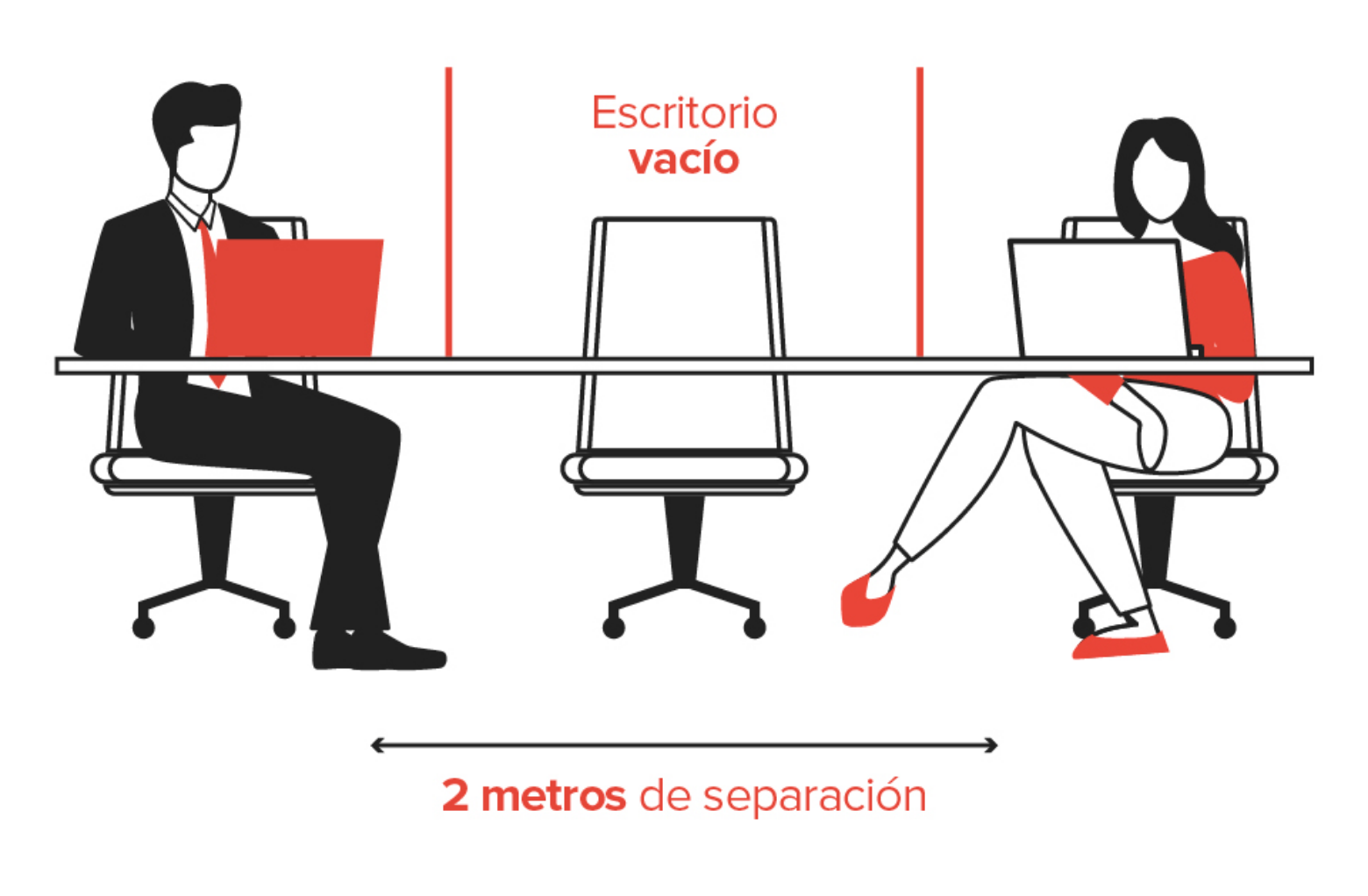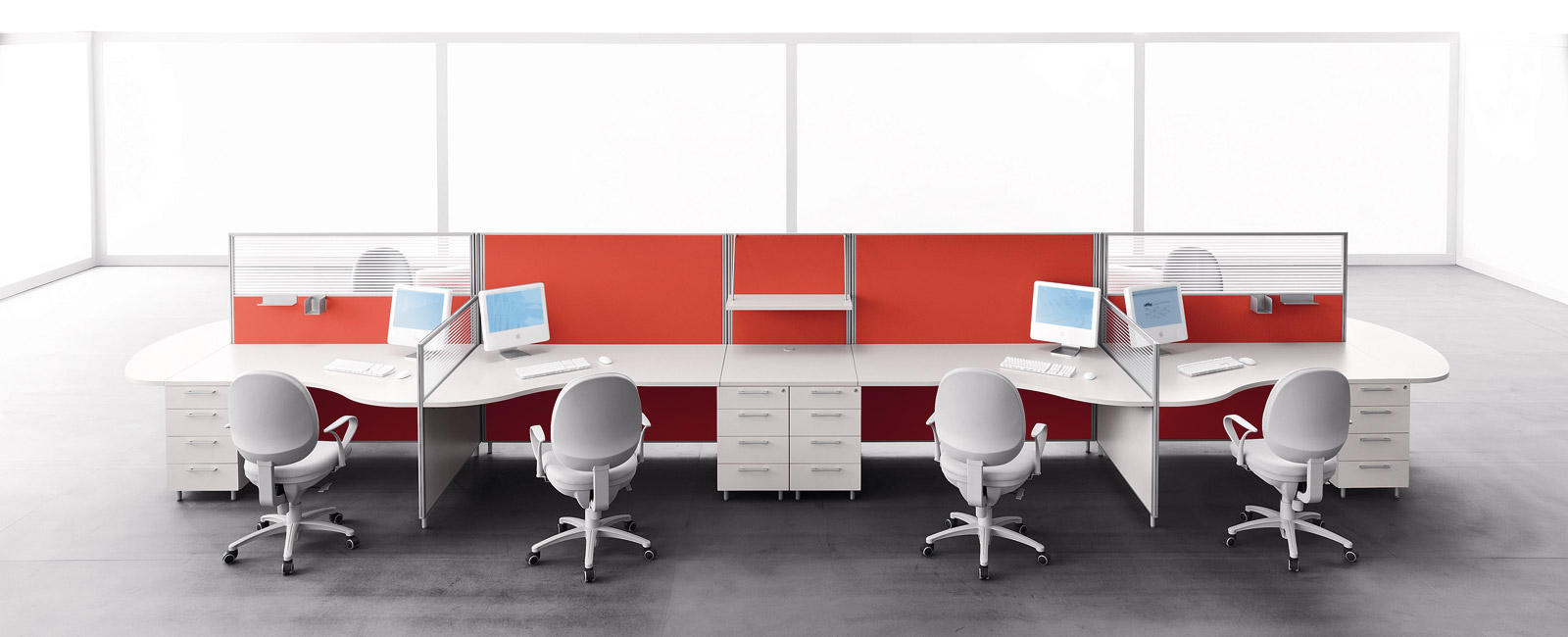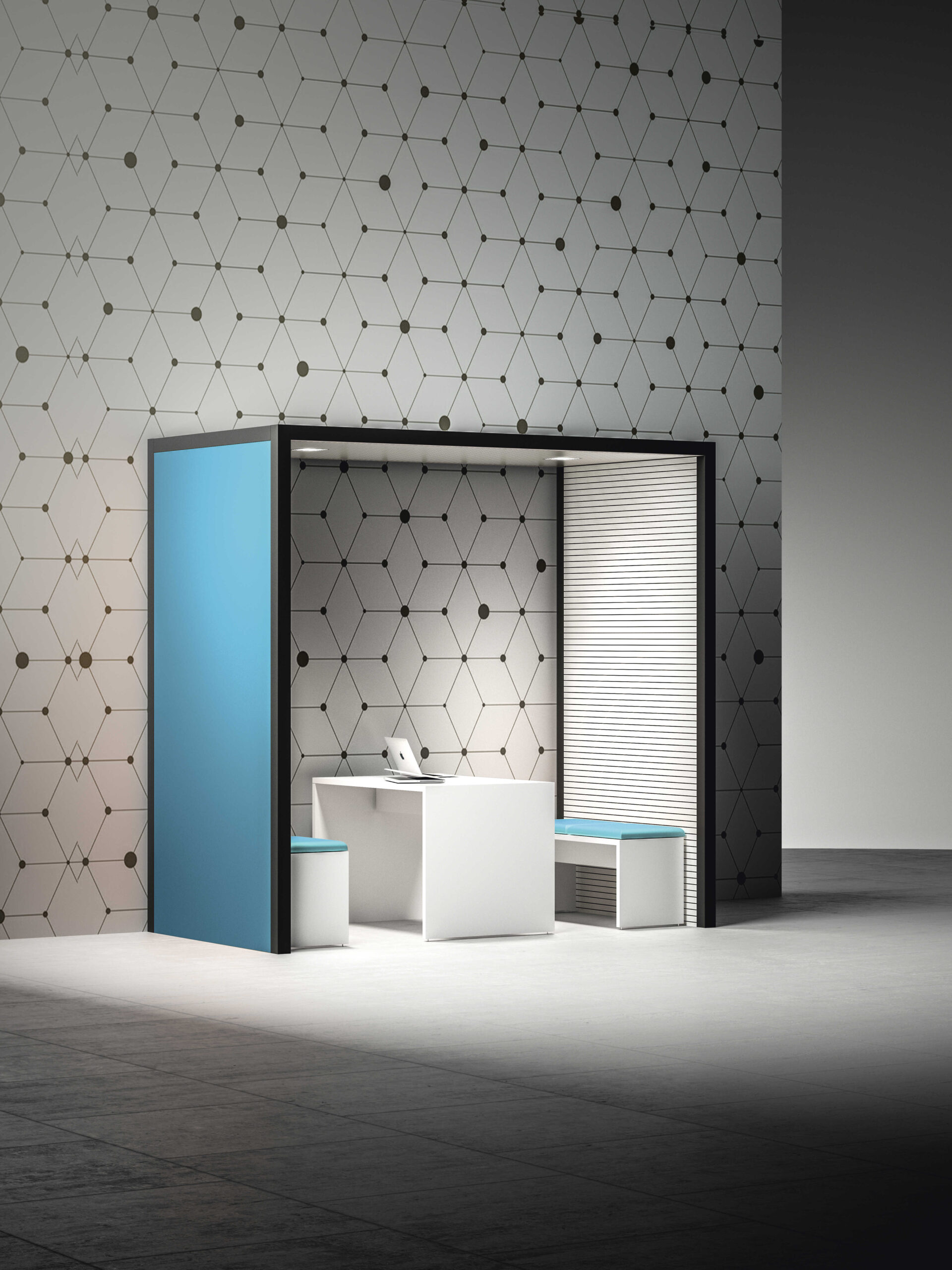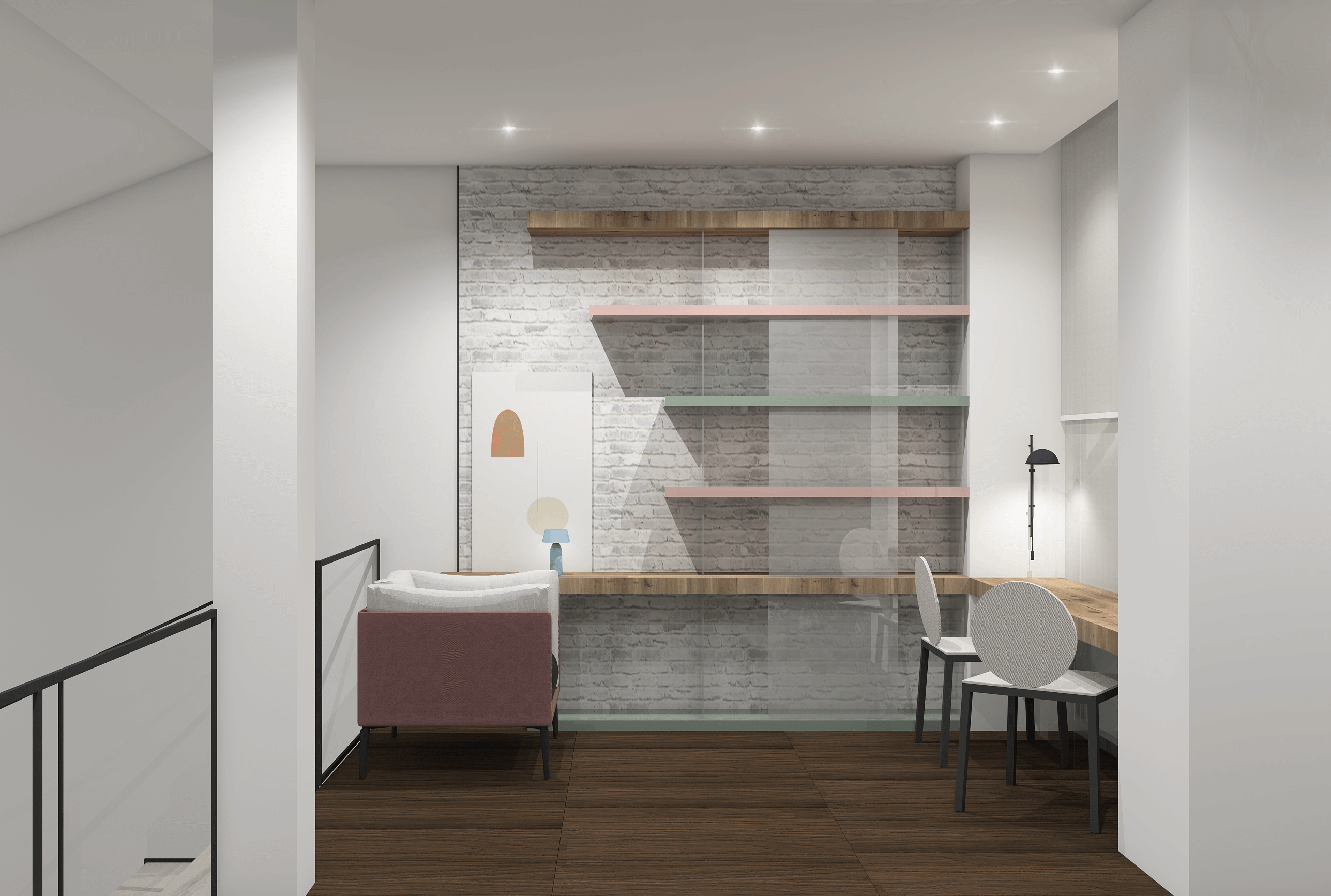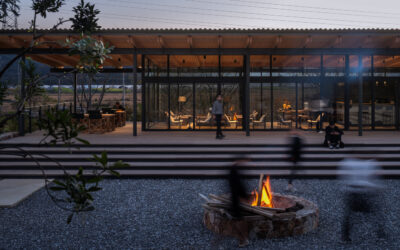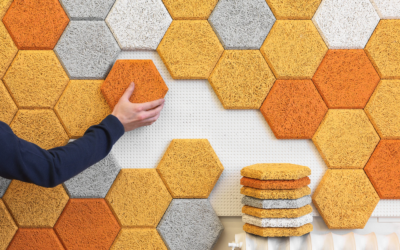NEWS
How Offices and Our Work-Life Will Change Due to Covid-19
In the previous months, our way of life has been thoroughly affected by the arrival of an unprecedented event: Covid-19. Due to this pandemic, not only have numerous industries been paralyzed on a global scale, but the en masse confinement has has been the catalyst for an extensive debate over the future of work.
Notwithstanding the fact that remote workstations have been growing in popularity in recent years (in the United States there was a marked increase in 159% of people who worked in their homes between 2005 and 2017) and projections showed the adoption of this system in the future, the coronavirus presented a new challenge for those companies that were unprepared to translate their labor force to their corresponding homes or even to perform the brunt of their responsibilities digitally.
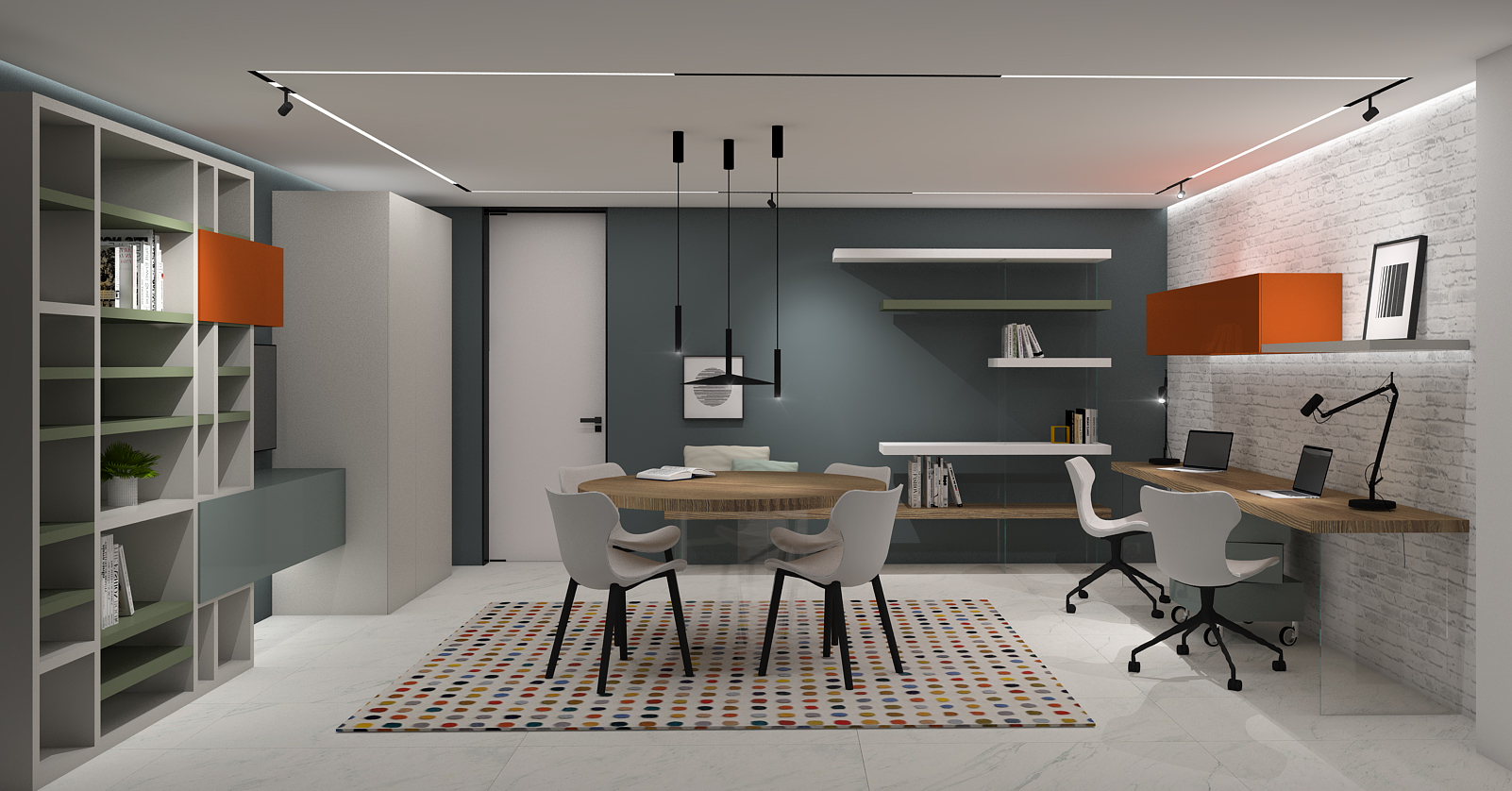
Home Office in Residential Project Apt PHC, Valencia, Venezuela.
Nonetheless, the grand global experiment of “working from home” has been a catalyst for numerous companies to recognize the multiple benefits of flexible workspaces. Employees invest less time and money in transport, obtain a better balance between their professional and personal lives and they develop in a more comfortable and productive environment. The result is an increase in productivity and professional satisfaction as well as a reduction in costs for the main office.
In the Office
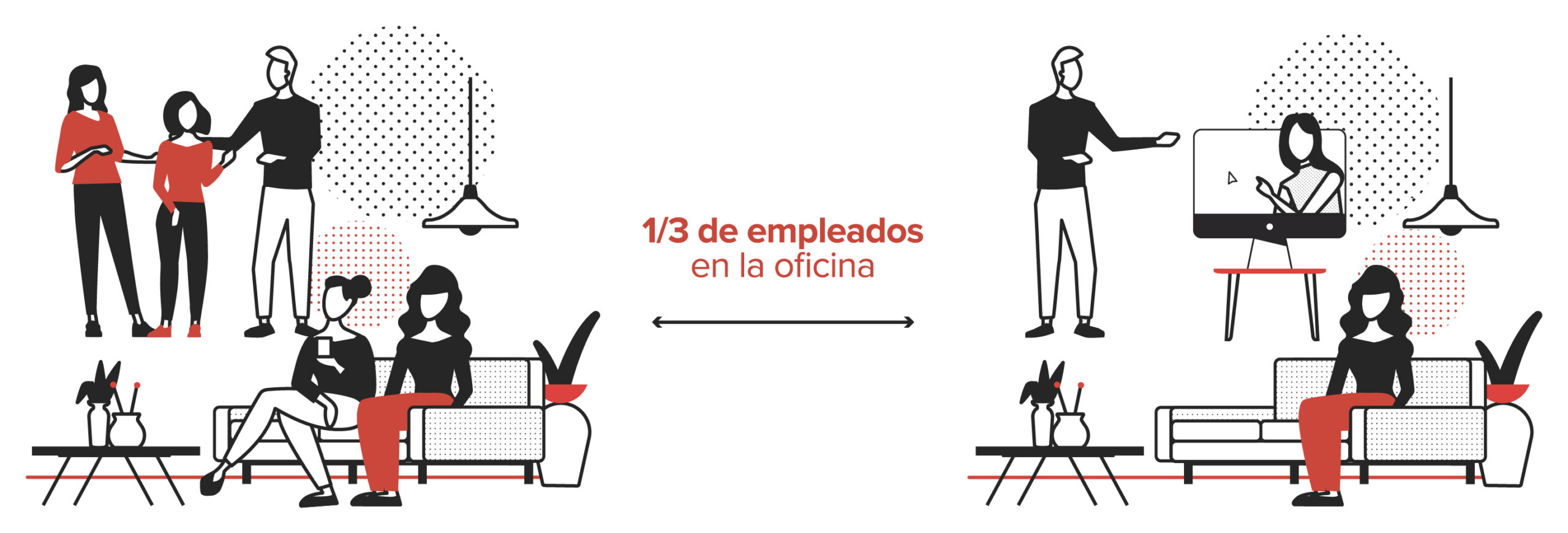
In the near future, it is possible to predict that the interior design for offices will be progressively more flexible, while guaranteeing that its densification takes a hiatus as common practice. These new Covid-19 protocols require a greater physical separation in the work place: more segregated stations, unused conference rooms and around 40% of previously inhabited spaces will remain unexploited due to the high rotation of personnel. This means that large corporations will look to minimize and optimize spaces for those activities that can only be executed in person, fitting them within a strict work schedule.
Uffix’s Zenith Operational System.
Likewise, a revolution in the way we interact with technology in our everyday lives will be highly sought after. This means that architects would need to design “contact-free” spaces where workers can call the elevator from their smart phones, office doors can be opened using motion sensors or facial recognition, among other alternatives that ultimately are promoting automation in contemporary architecture at all scales.
In regards to hygiene, the choice of the ideal material suited to its functions will be one of the fundamental principles of any project. Porous surfaces such as wood will be avoided, while technical stones or porcelain finishes will be preferred due to their inability to host bacteria and germs; guaranteeing the hygiene of each space.
With social distancing as the new standard, conference rooms will not only be considerably downsized to the point where they become an individually confined space, but this must also be paired with the development of a technological framework that can meet the high demand of digital connections. This autonomous closed model would be coupled with an excellent level of soundproofing to increase acoustic insulation and to guarantee the comfort and coziness during video conferencing.
At Home
Mass confinement has caused a forced transition for numerous employees, resulting in the establishment of improvised domestic offices. Nonetheless, by experimenting on the benefits of working remotely, it can be predicted that the arrangement of a workstation at home will gain prominence in the near future.
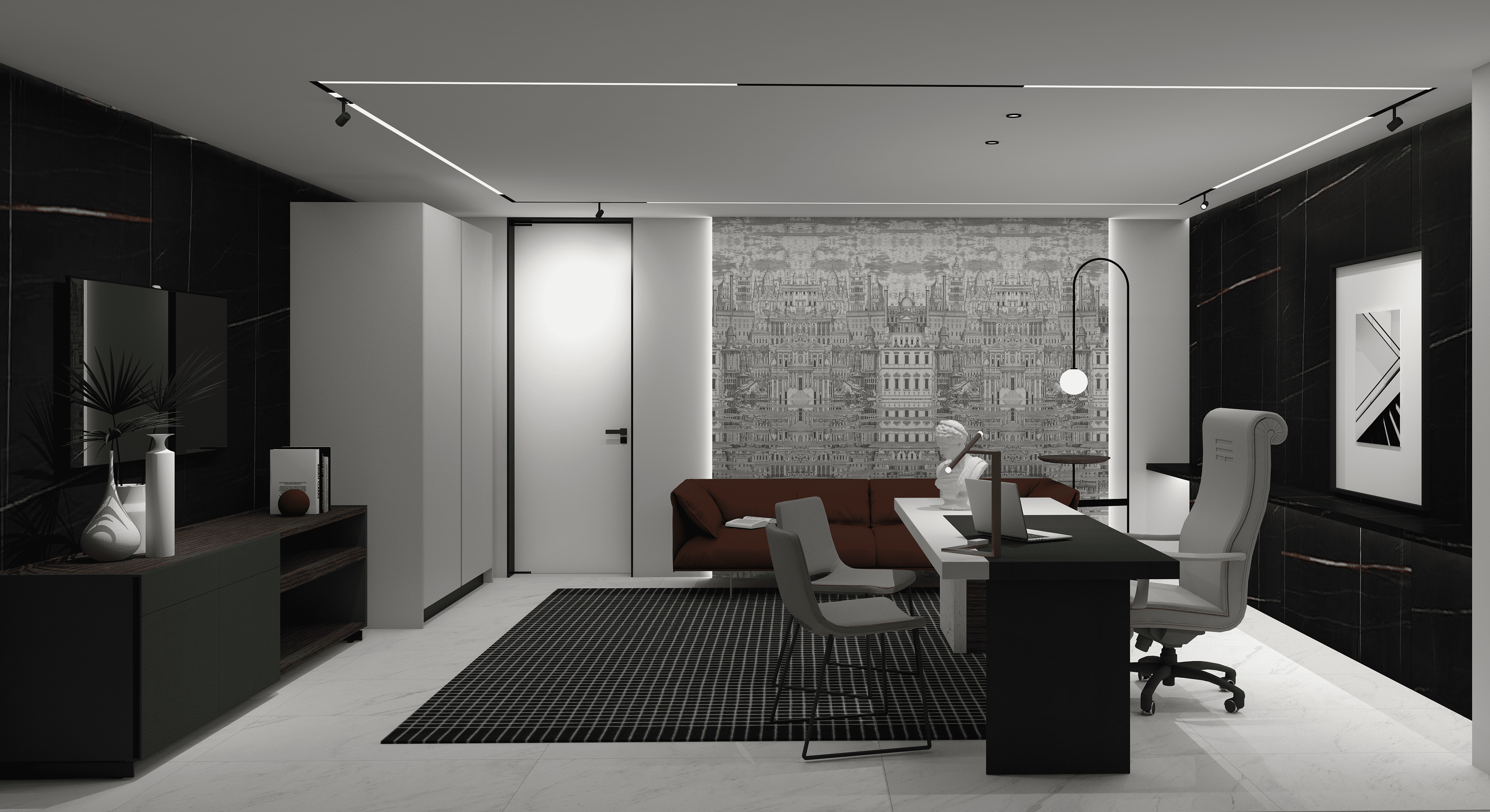
Office in Residential Project Apt PHC, Valencia, Venezuela.
The spatial organization must satisfy the growing need for private offices as an integral part of the home: having a desk with a simple chair and a lamp will no longer suffice. Thanks to new challenging routines and with the new possibility that working remotely becomes the new norm, the home’s study will become an isolated room which will offer the employee all of the necessary comforts to execute their responsibilities in an optimal manner.
Office in Residential Project Yerba Bonita, Bogota, Colombia.
If this trend continues and is strengthened over time, the transition from a collective enterprise to working remotely will completely reconfigure not only how we undertake our daily tasks, but will also thoroughly modify the architectural considerations that have been standards for office and home design; proving that the pandemic’s impact will have an enduring effect on our way of life.
FIND OUT
WHAT’S NEWS
OPEN SHOWERS: DELVE INTO THE APPLICATION OF THIS INNOVATIVE BATHROOM COMPONENT.
NEWS Open showers: delve into the application of this innovative bathroom component.On numerous occasions, emphasis has been placed on the drastic evolution that some key spaces in the home, such as the bathroom, have undergone; becoming an authentic sanctuary of...
INNOVATION AND ADAPTABILITY: REDEFINING THE HOTELS OF THE FUTURE
In the dynamic world of hospitality, hotels are constantly evolving to meet the expectations of modern travelers. Explore with us how advanced technology and innovative design approaches are transforming the guest experience.
4 EFFECTIVE STRATEGIES FOR IMPROVING ACOUSTICS IN THE HOME
Residential architecture aims at the constant search for improvement in the quality of life of the individual, through innovative techniques that satisfy absolutely all their needs. That said, sound plays a crucial role in this scenario of comfort; and it is imperative to address strategies that appease the noise traffic and envelop the home in a serene atmosphere.
Subscribe to our Newsletter
Receive our latest news regarding products, events and projects.
